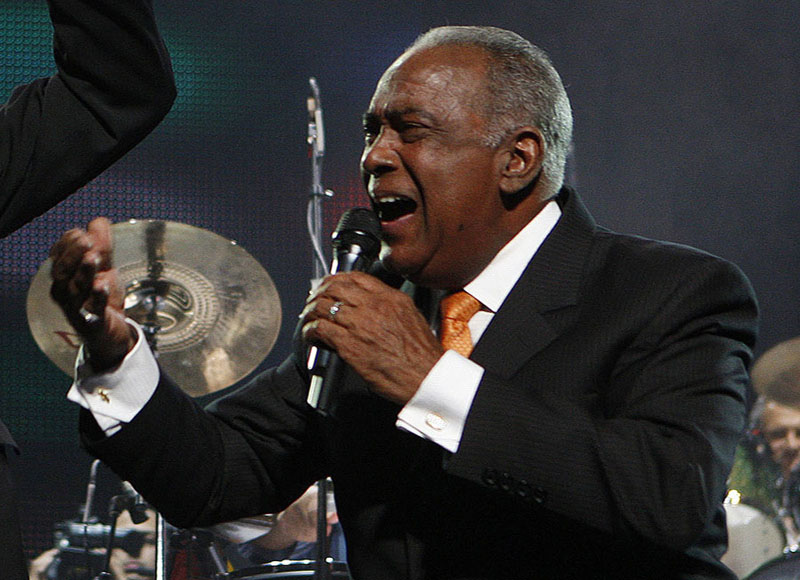Amusical chameleon is perhaps the best way to describe Cheo Feliciano. A true sonero with a voice that could rival Sinatra topped with a drum’s rim shot. Often imitated, never duplicated José Luis Feliciano Vega had an unmistakable smooth baritone voice that even left then-aspiring legends like Ruben Blades and panas like Willie Colon counting him as their musical hero. A composer, a singer and a true sonero, Cheo Feliciano helped pioneer salsa and added a soft and sultry vibe it didn’t even know it needed.
Cheo, a childhood nickname for José, was a proud son of Ponce, Puerto Rico where he was born in 1935. Always fascinated by music, he and other youngsters in his barrio started the group, El Combo Las Latas, where they played cans to serenade audiences. His interest became more serious the older he became and he attended Escuela Libre de Music Juan Morel Campos in Ponce where he studied percussion. In search of better opportunities, Cheo’s family would relocate to New York City and settle in Spanish Harlem in 1952. He quickly began taking odd jobs and small gigs as a drummer with bandleaders like Tito Rodriguez and Luis Cruz. Though he’d been playing percussion for several years, he took a leap to using his own natural instrument – his voice – in 1955 auditioning for and joining Joe Cuba’s sextet as a singer. The transition proved to be a successful one. He stayed with the Joe Cuba for 10 years and recorded nine albums with the band.
However, like many musicians of his time Feliciano fell victim to drug addiction, specifically heroin, nearly losing his life and career. He returned to his island nation for treatment at Hogares CREA. His compadre and musical partner Tito Curet Alonso was would aid in his recovery. The experience left him an outspoken anti-drug advocate.
After a three year hiatus, Feliciano made a triumphant and declarative return to music with his first solo album Cheo. It spawned classics like “Anacaona” and “Mi Triste Problema” songs that are indelibly tied to his voice and memory. Cheo’s homecoming coincided with the birth of salsa, which went from being played at jam sessions to nightclubs and concert halls. Feliciano helped pioneer the movement and recorded 15 albums for the ultimate salsa label, Fania Records, throughout the 1970s. His music blurred lines between dance floor hits to proud anthems to sensual boleros such as “Amada Mia.” In particular, his songs gave voice and pride to Latinos at a time when they needed it most. “His music embodied the rhythm of Puerto Ricans living in New York City,” U.S. Rep. Nydia Velazquez (D-NY) said in a statement, “and his lyrics helped tell our collective story”.
Feliciano’s 50-year career produced nearly 40 albums and the industry noticed. In 2008 he was honored with a Latin Grammy Lifetime Achievement Awards. If one looks back at the collective, all of his pursuits somehow involved music. Whether he was touring stages throughout Europe, Japan, Africa and South America; acting in musicals like “Clemente” or starting his own record label Coche Records, it was music that guided his path.
Unfortunately, Feliciano’s life was cut short three months shy of his 80th birthday. While driving along a highway in Puerto Rico, Feliciano lost control of his car and hit a lamppost and died. Fans across the world mourned and his native island declared three days of mourning including a mass memorial at Roberto Clemente Stadium that saw thousands come to pay their respects. Whether entrancing female fans with his velvety voice, making history with Fania or simply being a father to his four sons, Cheo did it with passion, conviction and style – like only a true don can.

